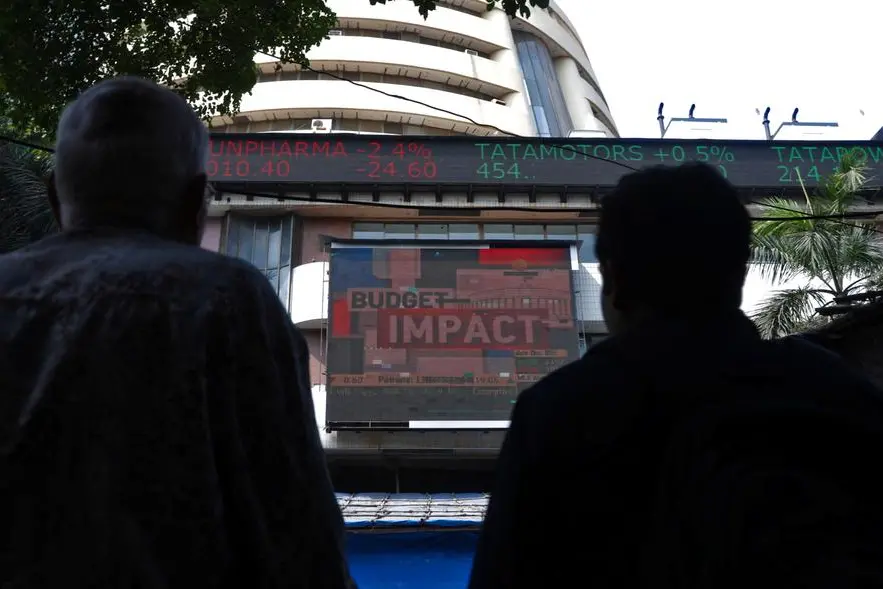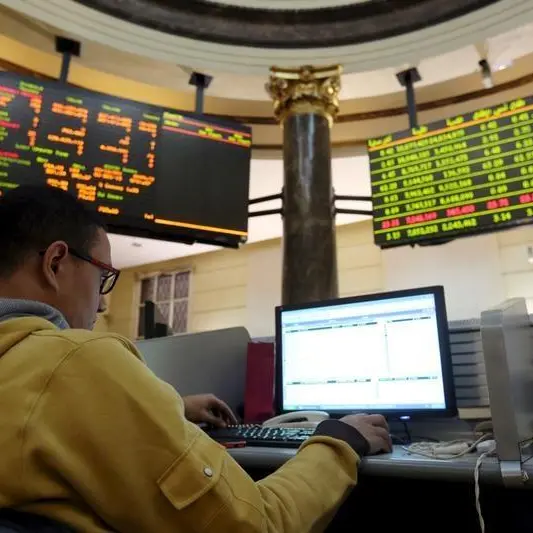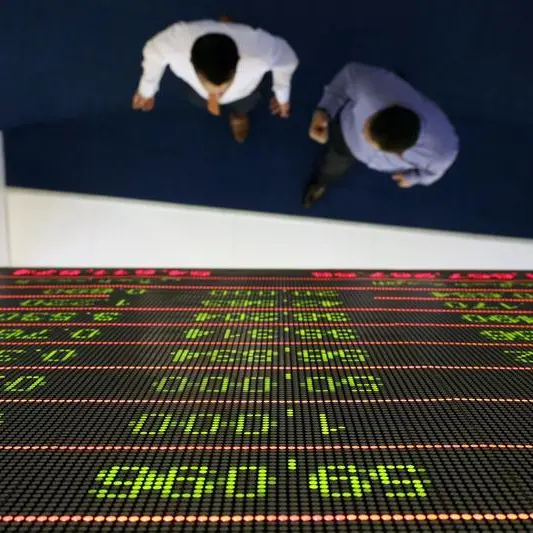PHOTO
Indian markets took a hit on Friday, following reports of overnight drone and munitions assaults by Pakistani forces, while Romania's leu faced its steepest weekly decline in over 16 years.
India's benchmark indexes, dropped over 1.2% each, and were poised to register their first weekly loss in four.
The tension escalated as Pakistan's armed forces executed multiple attacks using drones and munitions along India's western border, according to the Indian army, further intensifying the conflict between the two nuclear-armed neighbours.
The Indian rupee, which fell by 1% in the previous session, was showing a slight recovery, trading marginally higher at present. Traders speculate that the Reserve Bank of India might have intervened through state-run banks to stabilize the currency.
Concurrently, Indian government bond yields saw an uptick.
"There are no material signals to indicate de-escalation of tensions between India and Pakistan. There is both a sense of nervousness if it does not de-escalate quickly and there's a sense of comfort as its not boiling over," said Dhiraj Nim, an FX strategist and economist at ANZ.
"This near term risk aversion would prevail.. until we see some kind of a resolution come through via diplomatic channels."
Across the border, Pakistan's stock index managed a 0.2% rise after a near 7% fall on Thursday, alongside a 0.2% increase in its rupee.
The MSCI Emerging Market Index ticked up 0.4%, while a parallel currency measure remained flat.
Emerging markets navigated a dynamic week, marked by vigilant central bank meetings concerned about U.S. tariffs, while assessing the impacts of military conflicts and digesting mixed signals from the U.S.-China trade discussions.
Chinese markets were mixed, with the blue chip down 0.2%, while Hong Kong's Hang Seng was up 0.4%.
Anticipation was high for the upcoming Geneva meeting between the two parties, though concerns lingered that the limited trade agreement with London might not serve as a robust template for further deals, tempering optimism about Sino-U.S. trade negotiations.
China's exports surpassed forecasts in April, buoyed by a surge in demand from manufacturers hastening production to capitalize on U.S. President Donald Trump's 90-day tariff pause.
Elsewhere, Romania's leu was on track for its most significant weekly loss since January 2009, following the lead taken by hard-right presidential candidate George Simion in Sunday's first-round vote.
Bucharest's benchmark index was set for its toughest week in nearly three years.
JPMorgan analysts have forecast a 50-50 probability that political turmoil in Romania could trigger a 15-20% devaluation of the leu, with the alternative being a more modest 5% depreciation.
S&P Global Ratings anticipates that Romanian policymaking will become increasingly fragmented, less stable, and less effective in the coming months, potentially leading to weaker growth, fiscal, and external outcomes. Its 'BBB-' sovereign ratings on Romania carry a negative outlook.
"If the direction of politics takes a turn for the worse, in a market like Romania, and we had money there... we would pretty quickly react and run for the exits," said Rob Brewis, portfolio manager at Aubrey Capital Management.
Hungary's forint slipped 0.2%, while Budapest's stock index rose 1.2%, nearing record highs. The government aims to maintain inflation within a 3% to 4% range, following data showing annual price growth slowed to 4.2% in April, yet still exceeding market expectations.
(Reporting by Pranav Kashyap in Bangalore; Editing by Shailesh Kuber)





















